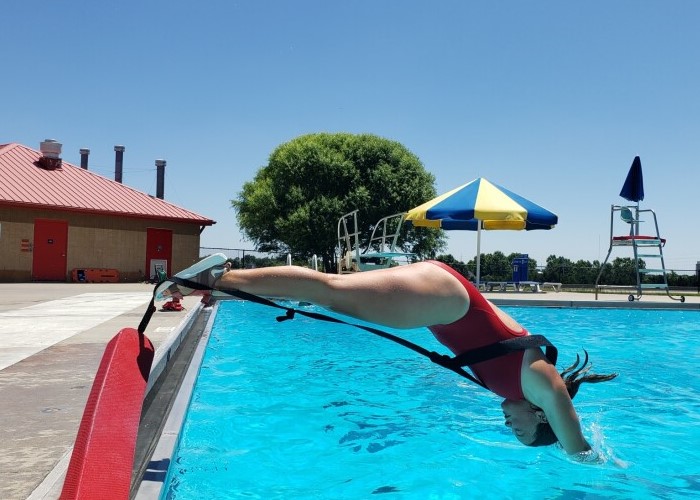A lifeguard is a crucial figure in aquatic environments, responsible for ensuring the safety and well-being of individuals enjoying water-based activities. In this comprehensive exploration, we will delve into the multifaceted role of a lifeguard, examining their essential duties, training requirements, and the significance of their presence in various aquatic settings.
1. Definitions
A lifeguard is a highly trained professional responsible for ensuring the safety of individuals in and around water. Positioned at pools, beaches, water parks, or aquatic facilities, lifeguards conduct constant surveillance to prevent accidents. They enforce safety rules, respond swiftly to emergencies, and possess expertise in water rescue techniques, CPR, and first aid. Lifeguards are instrumental in maintaining a secure environment, providing a crucial layer of protection, and promoting water safety through their vigilance, training, and commitment to swift, effective action in times of need.
2. Vigilance and Preparedness:
Lifeguards must maintain constant vigilance, scanning their assigned area for potential hazards and preemptively addressing risks. This includes being prepared to intervene at a moment’s notice to prevent accidents or respond to emergencies.
3. Essential Lifeguard Duties:
Surveillance and Prevention:
One of the lifeguard’s primary responsibilities is to surveil the water and its surroundings. This proactive approach involves preventing accidents by identifying potential risks, enforcing safety rules, and educating patrons about water safety practices.
Swift Emergency Response:
In the event of an emergency must be prepared to act swiftly and decisively. From rescuing distressed swimmers to administering first aid and CPR, their training equips them to handle a range of water-related emergencies.
Enforcement of Rules and Policies:
Lifeguards play a vital role in enforcing facility rules and policies. This includes ensuring that patrons adhere to safety guidelines, such as appropriate behavior in and around the water and compliance with diving regulations.
4. Training and Certification:
Comprehensive Training Programs:
Becoming requires comprehensive training in water rescue techniques, CPR, first aid, and emergency response. Lifeguard certification programs, often offered by organizations like the American Red Cross, ensure that individuals possess the necessary skills and knowledge to perform their duties effectively.
Physical Fitness and Conditioning:
Lifeguards must maintain a high level of physical fitness to respond quickly and effectively in emergencies. Regular training exercises, including swimming drills and endurance tests, are integral to their preparation.

5. The Significance of Lifeguards in Various Settings:
Pool:
At swimming pools, lifeguards monitor water activities, enforce safety rules, and respond to emergencies. Their presence is crucial for the safety of swimmers of all ages.
Beach:
On beaches, lifeguards safeguard beachgoers from the unique challenges posed by ocean conditions, strong currents, and changing tides. They play a pivotal role in preventing drownings and other water-related incidents.
Water Park:
In water parks, lifeguards oversee attractions, enforce height and safety requirements, and respond to emergencies. Their role extends beyond traditional swimming environments to include various water-based attractions.
6. Challenges and Rewards of Lifeguarding:
Vigilance Amid Distractions:
It must stay focused and vigilant despite potential distractions. Noise, crowds, and varying water conditions require unwavering attention to ensure a safe environment.
Rewarding Moments of Impact:
The reward of lifeguarding lies in the moments of impact – saving a life, preventing an accident, or teaching a valuable water safety lesson. Lifeguards take pride in their ability to contribute to a positive and secure aquatic experience.
Conclusion:
Lifeguards, often unsung heroes, are the guardians of water safety, playing a pivotal role in preventing accidents and responding to emergencies. Their comprehensive training, unwavering vigilance, and commitment to enforcing safety measures contribute to the overall well-being of individuals enjoying aquatic activities. As we dive into the intricacies of the lifeguard role, we gain a deeper appreciation for the dedicated professionals who stand between potential dangers and the joy of water recreation.




